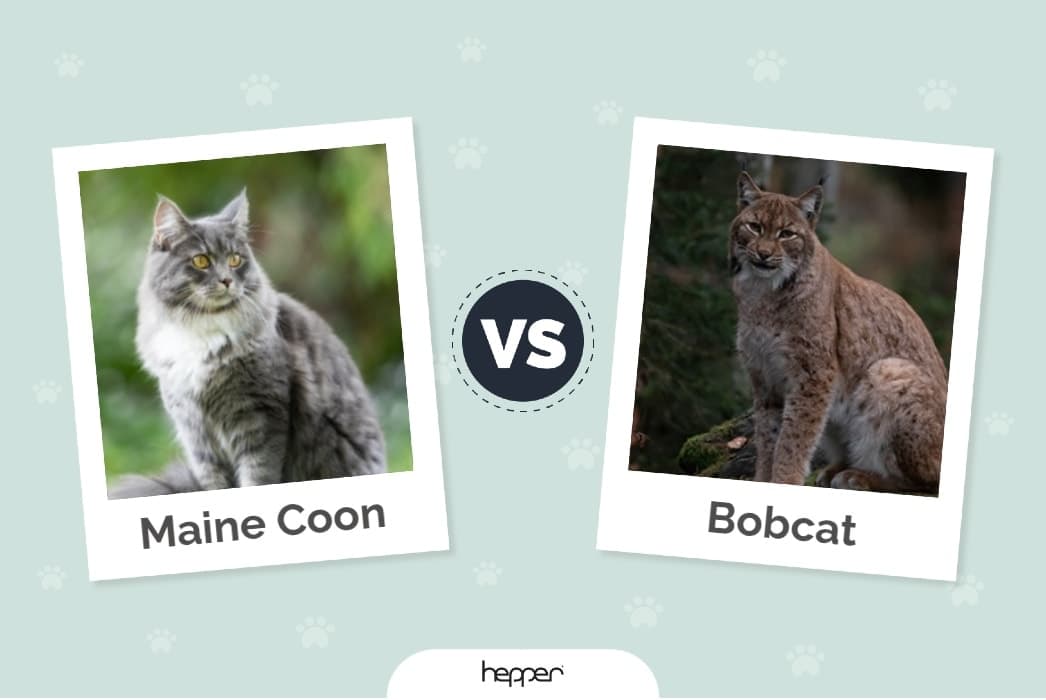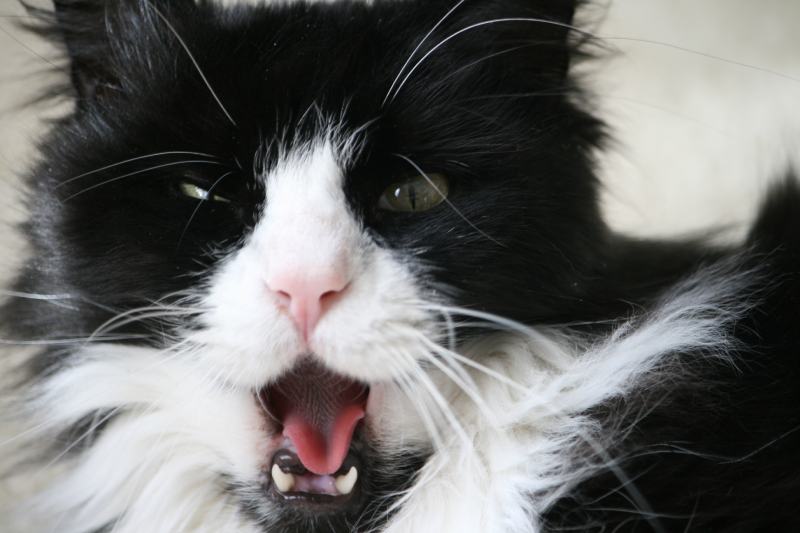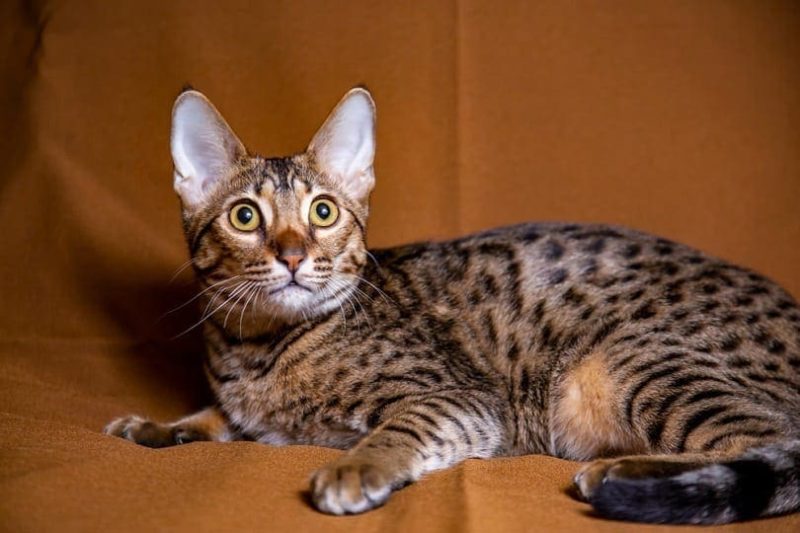Why Doesn’t My Cat Meow and Only Squeaks? Feline Behavior Explained
By Kit Copson
Updated on
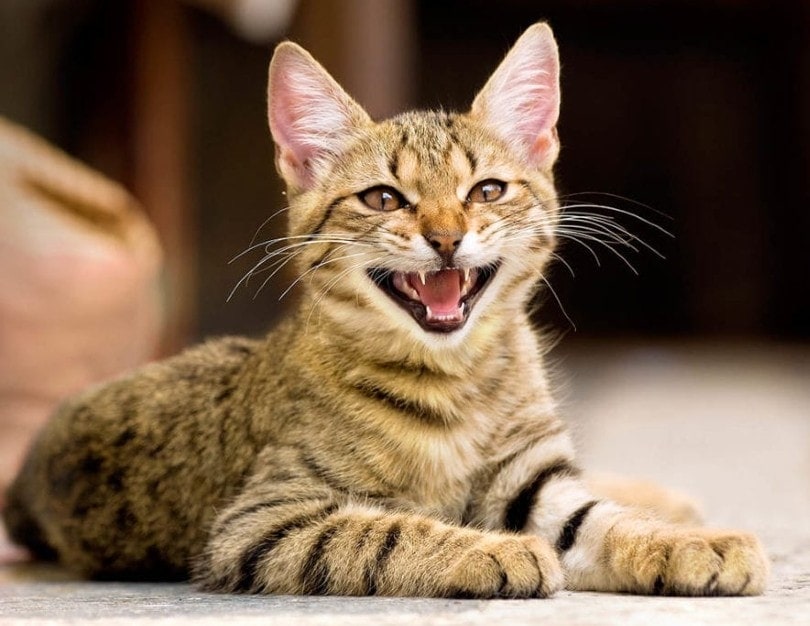
When it comes to cat vocalizations, it’s impossible to condense them down into a simple “meow”! Cats express themselves in so many ways with their body language and the multitude of noises they make. Some cats are loud and proud, whereas others stick to an appreciative chirp when you fill their food dish or pet them in the right spot. But what about cats that only squeak?
There isn’t just one reason your cat may be squeaking instead of meowing and not all of them are causes for concern. Squeaking is common in kittens, and some take this vocalization into adulthood due to not having learned to meow. Read on while we’ll explore all the potential reasons why your cat might be squeaking instead of meowing.
Top 5 Reasons Your Cat Squeaks
For some cats, you can just write squeaky sounds off as their spin on the more traditional “meow”! Every cat is unique, and some come out with pretty unique sounds or, in some cases, none at all. Some cats very rarely meow or only communicate now and then with chirps, chatters, or squeaky sounds. Here, we’ll break down all the possible reasons for squeaking.
1. Kitten Noises
Squeaking is a common (and very adorable) sound that kittens make to communicate. They learn to meow from their mothers and being around humans may also contribute as they learn how to respond to humans and get their attention with meows. If your adult cat squeaks, it’s possible that they didn’t hear meowing sounds or human voices as kittens.
This may sound odd, but not all cats are big on meowing. The mother cat may have been very quiet, or the “squeaky” cat grew up feral. In short, an adult cat who never learned to meow may make squeaking noises instead throughout their lives.
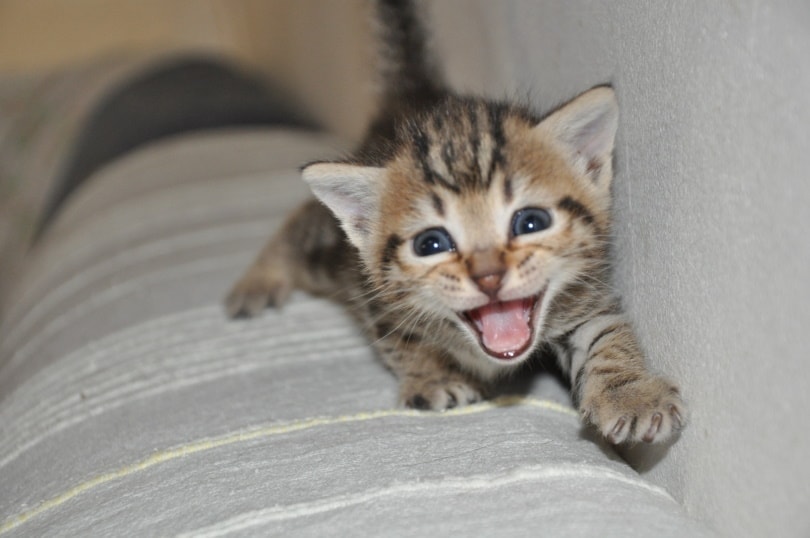
2. Excitement
When cats are excited, they sometimes make trilling noises that sound somewhat like a bird chirping. This sounds a little like squeaking, too. It’s common when cats are watching birds or squirrels outside, and it pretty much signals that they’re so tantalized, they just can’t contain their excitement!
It’s very possible to have a perfectly healthy, quiet cat that hardly ever meows but chitters and chatters when intrigued by something or when they’re trying to grab your attention.
3. Happiness
Sometimes, cats with a tendency to squeak may do so to “converse” with you or let you know they’re enjoying their current petting session. If your cat is relaxed and shows signs of contentment (like purring) when they squeak, they’re likely just happy to be with you.
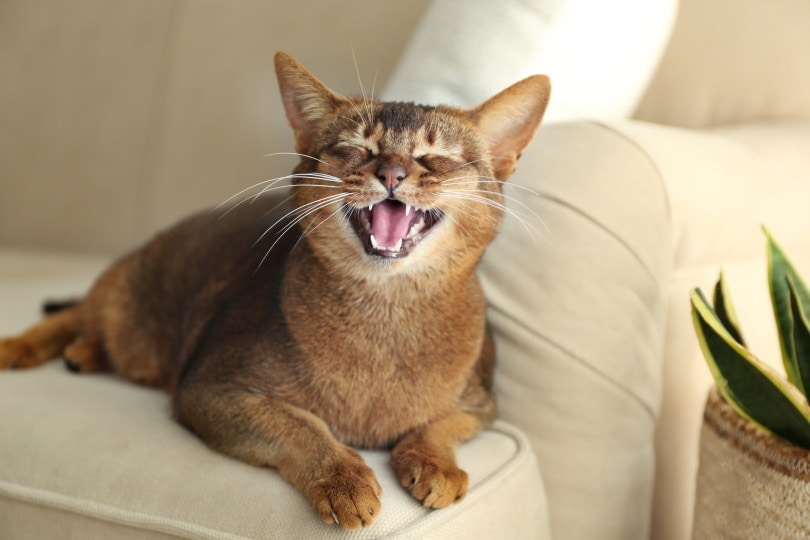
4. Throat & Vocal Cord Conditions
Throat conditions like laryngitis (inflammation of the larynx) may cause changes in the way your cat vocalizes.1 A cat’s throat and vocal cords can become inflamed as a result of various conditions and situations, including upper respiratory infections,2 irritant inhalation, and obstructions in the throat.
Signs of throat and vocal cord problems include changes in your cat’s regular vocalizations, coughing, wheezing, loud and/or high-pitched breathing, difficulty breathing, and the mouth hanging open. If your cat stops meowing and starts squeaking instead, it’s best to contact your vet to check for conditions that might be causing this.
5. Pain
In addition to conditions related to the throat and vocal cords, a cat might squeak due to being in pain elsewhere. For example, if you pick your cat up and they squeak, they might be signaling that they’re in pain or discomfort.
Some cats just aren’t keen on being picked up and may squeak in protest, but if your usually affectionate cat starts being reluctant to be held or touched in certain places, contact your vet to get to the bottom of this sudden change.
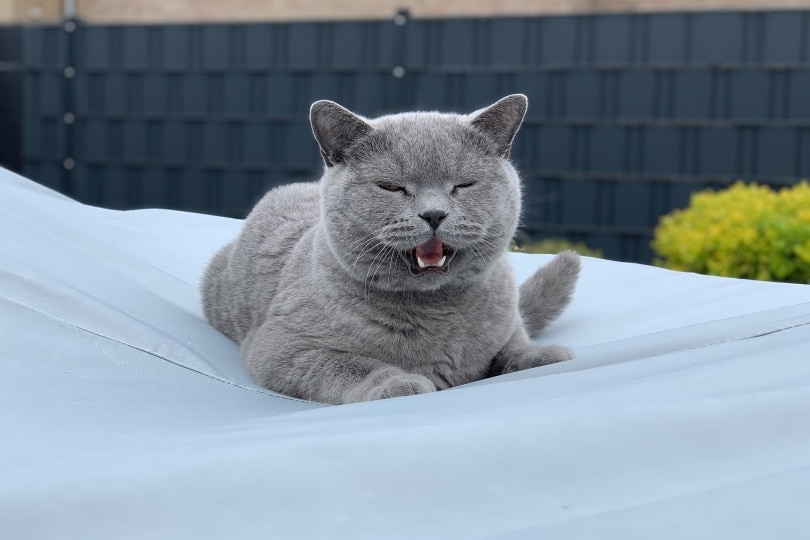
Conclusion
As we can see, there are many possible reasons why a cat would squeak instead of meowing. If your cat is healthy, squeaking is likely just part of who they are! Perhaps they never learned to meow properly as kittens or their meows are really short and high-pitched, making them sound squeaky. Another possibility is that they don’t meow much but squeak in “emergency” situations or when they’re startled or excited.
In some cases, however, cats may squeak due to issues with the throat and vocal cords or to communicate to you that they’re not feeling so good. You know your cat best and what is and isn’t normal for them, so follow your gut and contact your vet if you think something might be amiss.
Featured Image Credit: Stanimir G.Stoev, Shutterstock



